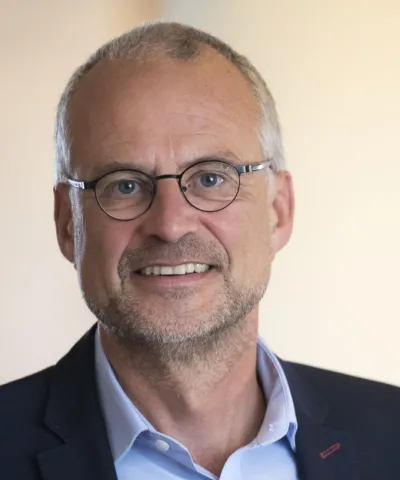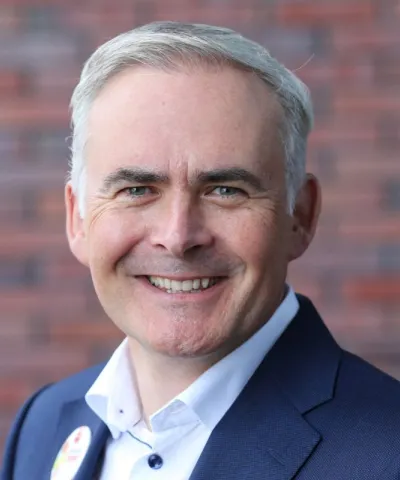Technological innovation is the key to achieving emission-free delivery
Ordering and having consumer products delivered has never been easier. From clothing to electronics, more and more packages are being delivered to your front door, often the very next day.
Dutch consumers are at their beck and call. At the same time, the urge to order leads to extra consumption, returns and, of course, millions of transport kilometers to get all those packages from A to B.
We sit down with Herna Verhagen, CEO of PostNL, about the sustainability of the logistics sector and the impact this has on future mail and parcel delivery.
If you look at the delivery industry, what are the tipping points to drive the transition in sustainability?
"As a logistics service provider, we have to make sure, that we get the packages and letters to the end customer sustainably. On short distances, we can already do that very well. Think about mail delivery, delivering parcels in the city center by cargo bike, parcel delivery with electric vans and city logistics where shipments are bundled in city hubs and we bring them into the city with emission-free vehicles. We are also working hard on alternative delivery options, such as parcel machines and parcel points. Consumers can also choose to adjust the delivery time. The biggest challenge lies in making long-distance transport more sustainable, for example, transporting with emission-free trucks. Technological developments have not yet reached the point where they can be used on a large scale. The same applies, incidentally, to alternative-fuel aircraft.
Our electric fleet currently already includes more than 1,300 electric vehicles: from e-bikes, e-cargo bikes, electric scooters to electric parcel buses. In the shorter term, electric buses are also still a challenge, as there are simply not enough available. However, we are already preparing and expanding our electric charging facilities so that all parcel sorting centers will have them.
I also think that any shortages will solve themselves, because the technology already exists and there is sufficient demand for it. Moreover, there are also more and more sustainable alternatives, such as e-cargobikes."
How can the logistics industry influence faster development?
"We can do that in four ways. First, there is the number of 'green' vans that we ourselves need and want to buy. As long as we create additional demand ourselves, the additional capacity will come from the manufacturers of those vans. We also help companies test trucks that run on batteries or hydrogen. In this way, we as a company have an influence on technological development. Second, we are thinking about other forms of transportation. In some cases, we can use trains instead of planes to reduce emissions. Third, PostNL is collaborating on the use of HVO100, an alternative fuel that replaces fossil fuel. And finally, we can offset unrealized greening in our own supply chain outside that supply chain. I find the latter option less charming, because that way we do not structurally solve the emissions problems. The more we can move to emission-free within our own supply chain, the better. What we do see clearly is that green is currently more expensive than 'normal' thanks to all the innovation investments required - and it will remain so for a very long time."
Consumers' preferences could also accelerate sustainability. Do you see that happening soon?
"The percentage of consumers who translate the importance of sustainability into their own behavior could be higher, even among young people. You sometimes hear that the new generation of consumers always buys sustainable, but in practice I don't always see that reflected. The next 20 years will see a major change in behavior among all consumers.
I see as a social trend that consumers expect companies to take sustainability to heart. Therefore, we want and need to take on the role of being more sustainable. Going further green is necessary for companies in the sector to ensure a right to exist."
"Going further green is necessary for companies in our industry necessary to ensure a livelihood"
At the other end of the chain are the vendors. Do you see any function for them in making the chain even more sustainable?
"An important role in changing consumer behavior also lies with the web shops. Think about returning clothes, for example. By being more specific in the product description and identifying reasons why something is not as expected, unnecessary returns can be prevented. We help webshops with advice to reduce their return flows."
So on the one hand, there is the task of reducing "unnecessary" volume. At the same time, the pile of packaging is accumulating. In that respect, do you see any opportunities for the industry to become more sustainable? "Packaging can be smaller. Research by Thuiswinkel.org shows that on average fifty percent of the contents of a cardboard box consists of air. By packaging shipments better, less air is transported, webshops can contribute to a better environment and the logistics process becomes more efficient. Larger webshops are already choosing smaller packaging more often, because it provides more efficiency.
Small and medium-sized companies often do not have the opportunity to do things differently. This is where we actively take on a role. We do this, for example, by developing and selling our own packaging to small companies that do not have the money to stock many different packaging formats. We also give web shops tips on how to package their products smarter.
In addition, large packages are also more expensive to transport. I am happy with every package we get to transport. But by offering a cheaper rate for smaller packages, we can also contribute to making logistics more sustainable."
Can't a postal company also ensure, that packaging can be easily reused?
"Surely making packaging totally reusable is something different from returning cardboard boxes. I don't see ourselves as carriers of unusable paper and waste. But I think it is certainly possible for PostNL, through the retail store or the driver, to take used packaging back for reuse, provided that the packaging is suitable for that. So yes, as a logistics provider, we want to take extra steps on reusing packaging."
Remarkable, isn't it, that for a number of core initiatives, for example sustainable long-distance transportation and recycled packaging, we are yet to see quite a bit of investment in innovativeness?
"Sustainability is a long-term thing. On the one hand it is about changing consumer behavior and on the other hand it requires the necessary investment to make the chain sustainable from start to finish. Things may be going differently than we estimate now, but I expect that we will actually see changes in the coming years. I am hopeful and positive about this and we are also actively contributing to it, but something like this does not happen overnight.
"Sustainability is a long-term thing. On the one hand, it is about changing of behavior and on the other hand it requires significant investment to make the supply chain sustainable from start to finish"
In the meantime, as a postal and parcel company, we must ensure that we perform our task as sustainably as possible and keep society informed of this. For example, by putting very clearly on our vans that they drive electric."
To conclude: Will consumers notice this further sustainability in their wallets?
"Sustainability is one of the most important issues of our time and that requires investment in innovation. Our ambition is to be the delivery company of choice and to be green across the board as a carrier. So I don't think, we are going to offer customers the choice to pay for sustainable or not. As sustainable as possible is the only option as far as I'm concerned."






